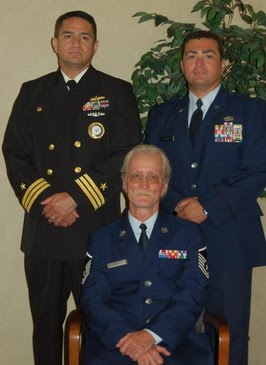Then they were walking along the stream together and he said, “Maria, I love thee and thou art so lovely and so wonderful and so beautiful and it does such things to me to be with thee that I feel as though I wanted to die when I am loving thee.”
“Oh,” she said. “I die each time. Do you not die?”
“No. Almost. But did thee feel the earth move?”
“Yes. As I died. Put thy arm around me, please.”
“No. I have thy hand. Thy hand is enough.”
He looked at her and across the meadow where a hawk was hunting and the big afternoon clouds were coming now over the mountains.
“And it is not thus for thee with others?” Maria asked him, they now walking hand in hand.
“No. Truly.”
“Thou hast loved many others.”
“Some. But not as thee.”
“And it was not thus? Truly?”
“It was a pleasure but it was not thus.”
“And then the earth moved. The earth never moved before?”
“Nay. Truly never.”
“Ay,” she said. “And this we have for one day.”
He said nothing.
-- Ernest Hemingway, from "For Whom the Bell Tolls."
"The earth moved" has become the cliché to end all clichés but it was probably fresh and new in 1940 when Hemingway's work was first published. Me? I'm all about "And this we have for one day." Because that's all any of us ever really have... that one day. If we're lucky we'll have a succession of days, but in the end? It's that one day. I'm sure you have yours, Gentle Reader. I know I have mine. And I'm grateful for it.
Photo: Me -- Kyoto, Japan. 1975.





.jpg)




I'd settle for half a day.
ReplyDeleteExcuse my ignorance but is the pic some sort of temple or shrine? I need new glasses or a bigger monitor.
Not being a Hemingway fan, I've never read For Whom the Bell Tolls. That passage is just beautiful and is causing me to possibly rethink my feelings on the man and his writing.
ReplyDeleteThat said - that one day. I find it hard to isolate just one day like that, when the earth moved. To me it means so much more than the usual cliche' - and if I apply my own interpretation I have to say that I've had more than one of "those days" and I'm grateful, exceedingly, for each one. Because I'm well aware that many people can hardly say they've had just one.
Blessings abound.
Anon: Yes... it's a temple/shrine in Kyoto. I don't recall if it's Buddhist or Shinto but I do know it was OLD, like over a thousand years.
ReplyDeleteKris: I understand what you say about "one day." I had many more than just one and consider myself blessed, too. But there are several that stand out in my mind's eye, perhaps three or so.
Give ol' Ernest a shot. He's most definitely a "man's man" sorta writer but he can and does wax philosophical. Often.
Just makes me rather sad (that passage).
ReplyDeleteBut there have been days, moments, that I have had -- those that you never, ever want to forget, no matter what.
Here's hoping the memories never fade. Truly.
I love his short, choppy sentences - beats the hell out of Hawthorne.
ReplyDeleteHere's hoping the memories never fade. Truly.
ReplyDeleteI second that, Kath.
Lou: True, dat!
My, but you do know how to take a body into lovely places in the memory.
ReplyDeleteI've read every word Hemingway wrote -- some several times. The Old Man and the Sea can break my heart to this day, and The Short Happy Life of Francis McComber is a treasure. Thism passage and the farewell scene in Casablanca are so very remarkable for their intensity and brevity. And truth.
Wow.
Moogie: I'm revisiting my favorite Hemingway books now that I have the Kindle. I also plan to read those I passed up in the way-back. I could say the same for a lot of other authors but ya gotta start somewhere, no? Hemingway was better than most, in my mind.
ReplyDelete